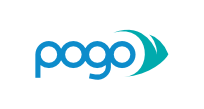The Partnership for Observation of the Global Oceans (POGO) in partnership with the Nippon Foundation, the University of Liverpool, University of Southampton and Plymouth Marine Laboratory (PML) announces a special Fellowship for on-board training on the GEOTRACES North Atlantic ‘FRidge’ Cruise. One berth has been reserved on the cruise for the selected candidate. The programme is designed to promote training and capacity building leading towards a global observation scheme for the oceans.
The GEOTRACES Programme
GEOTRACES is an international programme which aims to improve the understanding of biogeochemical cycles and large-scale distribution of trace elements and their isotopes in the marine environment. Scientists from approximately 35 nations have been involved in the programme, which is designed to study all major ocean basins over the next decade. GEOTRACES’ mission is to identify processes and quantify fluxes that control the distributions of key trace elements and isotopes in the ocean, and to establish the sensitivity of these distributions to changing environmental conditions. More details can be found at www.geotraces.org. GA-13 is the latest UK contribution to GEOTRACES and will take place between December 2017 and February 2018 sailing along the mid-Atlantic Ridge (Figure 1).
The training will consist of an initial phase of 2 weeks based at Liverpool University where the Fellow will learn to measure dissolved oxygen based on the ‘Winkler’ technique. This is a measurement vital to the calibration of the sensor package attached to the water column sampling CTD (Conductivity, Temperature, Depth) system that will be used during the cruise to take the water samples. Following that, the Fellow will then receive 2 weeks’ training at PML on the use of a segmented flow, colorimetric, 5 channel nutrient autoanalyser. This system is configured to analyse nitrate, nitrite, silicate, phosphate and ammonium. This will include the preparation of reagents and standards, and the operation of the analyser including basic trouble-shooting. Sampling and handling of the water samples will be included according to the International GO-SHIP protocols. Following the cruise the cruise results will be quality controlled through the computer and final data sets produced and interpreted alongside other ocean variables including salinity and temperature etc. from the cruise.





